Workshop 14: Potential and challenges of citizen science in sustainability transformations
Growing number of citizen science initiatives demonstrate the potential of recruiting great masses of volunteering citizens in the production of environmental data on various issues from littering and air and water quality monitoring to biodiversity.
In addition to broadening, complementing, and speeding up data production, citizen science is envisioned to restore public trust in science, enhance connectivity to nature and empower people to identify and resolve problems in their living environments.
On the other hand, critics call for more nuanced understanding of the quality and outcomes of the novel interactions that these citizen science initiatives introduce between citizens, science and policy making. For example, it has been argued that despite engaging the publics, citizen science prioritises professional epistemologies, serves pre-defined policy goals and frameworks and downplays volunteers’ motivations.
Furthermore, social sciences have their own, often community-driven traditions of knowledge coproduction, such as action research and co-research. Yet, environmental public administration and scientific communities still appear unable to value or lack the practical capacity to implement such community-based initiatives to redesign their strategies and policies.
This workshop scrutinizes the underlying institutional, normative and epistemological challenges of citizen science and its capacity to stimulate transformative action and societal change in societies facing sustainability problems, addressing, for example, the following questions:
- How do participatory ways of doing research change the relations between civil society, science and policy making? What kind of methods and approaches strengthen communities and their voice in environmental decision making? What kind of communities have evolved around participatory science?
- What kind of inequalities or asymmetries remain or result from the expanding and intensifying use of participatory approaches in research and how these could be addressed? How can citizen science simultaneously re-distribute epistemic power while ensuring robust evidence for decision making?
- Does citizen science extend or enrich ideas about what kind of knowledge might be relevant or actionable in environmental decision making? How can participatory approaches help resolve controversies over knowledge in environmental decision making?
- Are there possibilities to bring together the different traditions of engaging the publics in natural and social sciences?
- What benefits/constraints arise from the increasing use of digital devices in citizen science? Can digitalisation enrich citizen social science and the decisions resulting from it?
This workshop calls for papers that explore alternative forms of citizen engagement in science and discuss how they can contribute to rethinking the institutions and policies shaping sustainability transformation. The papers can be theoretically, empirically or methodologically oriented.
Paper abstracts should be no longer than 300 words and be submitted no later than 30 November 2023. Paper abstracts typically contain: A preliminary title, aim/research question, framework, a note on data and a (tentative) conclusion. You will get notified on acceptance/decline by 15 January 2024. Full papers are expected to be delivered no later than 20 May 2024.
Please send your paper abstract to the following addresses: taru.peltola@uef.fi, monika.suskevics@emu.ee; cc: ness2024@abo.fi).
Convenors
- Taru Peltola, University of Eastern Finland and Finnish Environment Institute, (taru.peltola@uef.fi)
- Monika Suškevičs, Estonian University of Life Sciences, (monika.suskevics@emu.ee)


